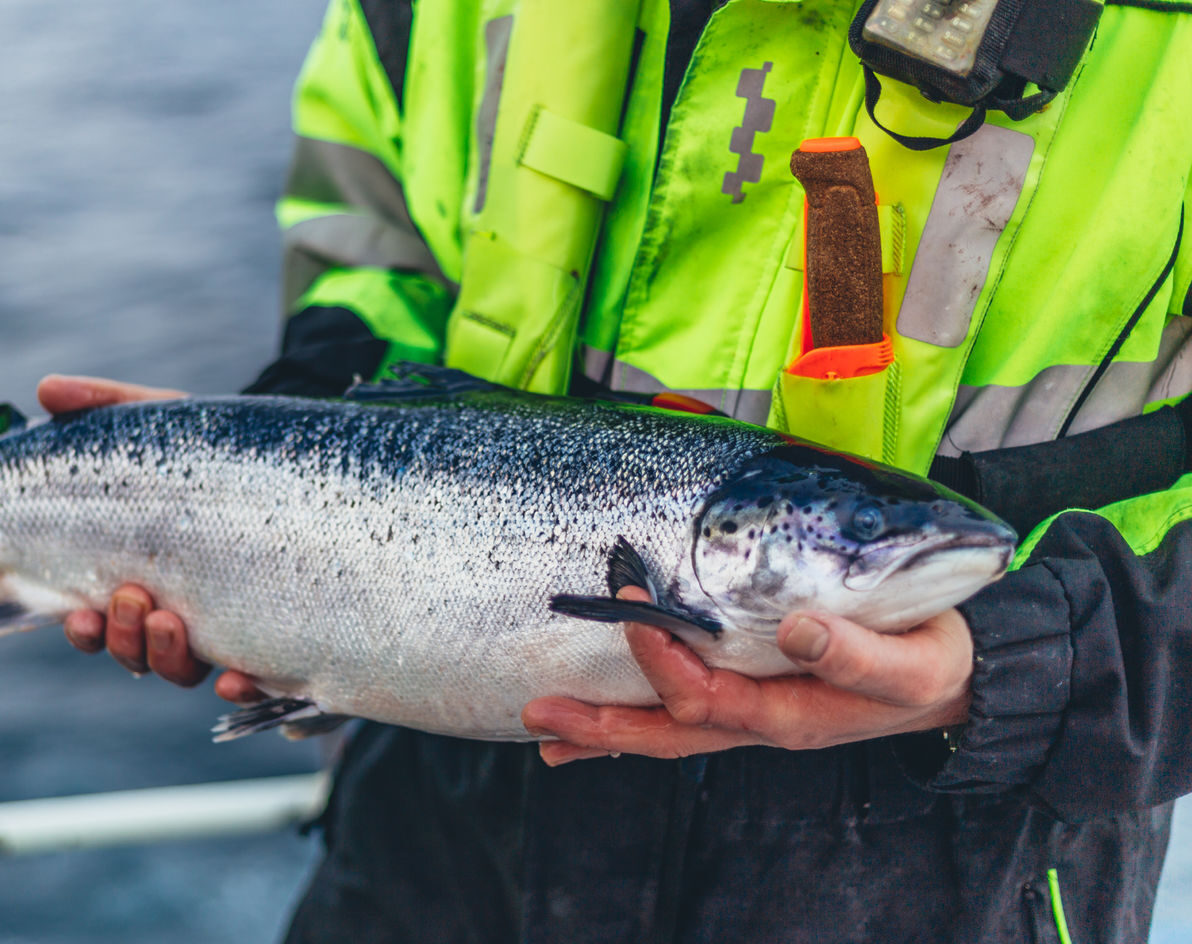
The salmon standard
Salmon farmers face a number of issues in bringing their seafood to market. With ASC certification, farmers evidence their contributions to responsible labour practices, disease management, and ecosystem conservation.

ASC sets the standards for environmentally and socially responsible salmon farming.

Certified farms actively minimise their impact on the surrounding natural environment.

Certified farms operate in a socially responsible manner, care for their employees and work with the local community.
ASC certification gives farms clear guidelines to follow. The Salmon Standard helps protect farms against these issues:
Biodiversity
ASC certified salmon farms minimise impacts on the local ecosystem in a number of ways, such as the development and implementation of an impact assessment to protect birds, marine mammals and sensitive habitats, protection of the ecological quality of the seabed, ensuring farms are not sited in High Conservation Value Areas (HCVA) and minimising fish escapes to an absolute minimum. All lethal incidents with wildlife must be made publically available.
Feed
ASC certification requires salmon farms to adhere to strict limits to minimise the use of wild fish as an ingredient for feed. In addition, the standard requires farms to ensure full traceability back to a responsibly managed source, preferably certified, both for wild fish and soy.
 Pollution
Pollution
ASC certified salmon farms are required to measure various water parameters (phosphorus, oxygen levels, etc.) at regular intervals and remain within set limits. Responsible farming can only take place in water bodies that are classified as ‘good’ or ‘very good’ (e.g. by the EU Water Framework Directive). Copper release into the water must be minimised and monitored.
 Diseases
Diseases
ASC certified salmon farms are required to adhere to rigorous requirements to minimise disease outbreaks. In doing so, they must also cooperate with other farmers operating in the same area. A Fish Health Management Plan detailing steps for biosecurity management must be developed under supervision of a veterinarian and implemented on the farm. In addition, the farms need to adhere to low levels of parasites (especially sea lice) and can only use certain medicines under very strict conditions. The use of medicine before a disease is diagnosed (prophylactic use), is prohibited. Producers need to manage farms in such a way that salmon survival rate is high. Instances of unexplained increased mortality, as well as sea lice counts are required to be publically available.
 Social
Social
ASC certification imposes strict requirements based on the core principles of the International Labour Organisation (ILO), these include prohibiting the use of child labour or any form of forced labour. All ASC certified farms are safe and equitable working environments where employees earn a decent wage and have regulated working hours. Producers also need to consult (indigenous) communities, inform them about health risks and provide access to vital resources. Similar requirements apply for smolt suppliers to the ASC certified salmon farm.
Standard documents
Salmon – Standard documents
Other documents
Salmon – Other documents
ASC Salmon Audit Manual v1.3 – Spanish
Please click here to access the archive of previous versions of the ASC Standards documents.



